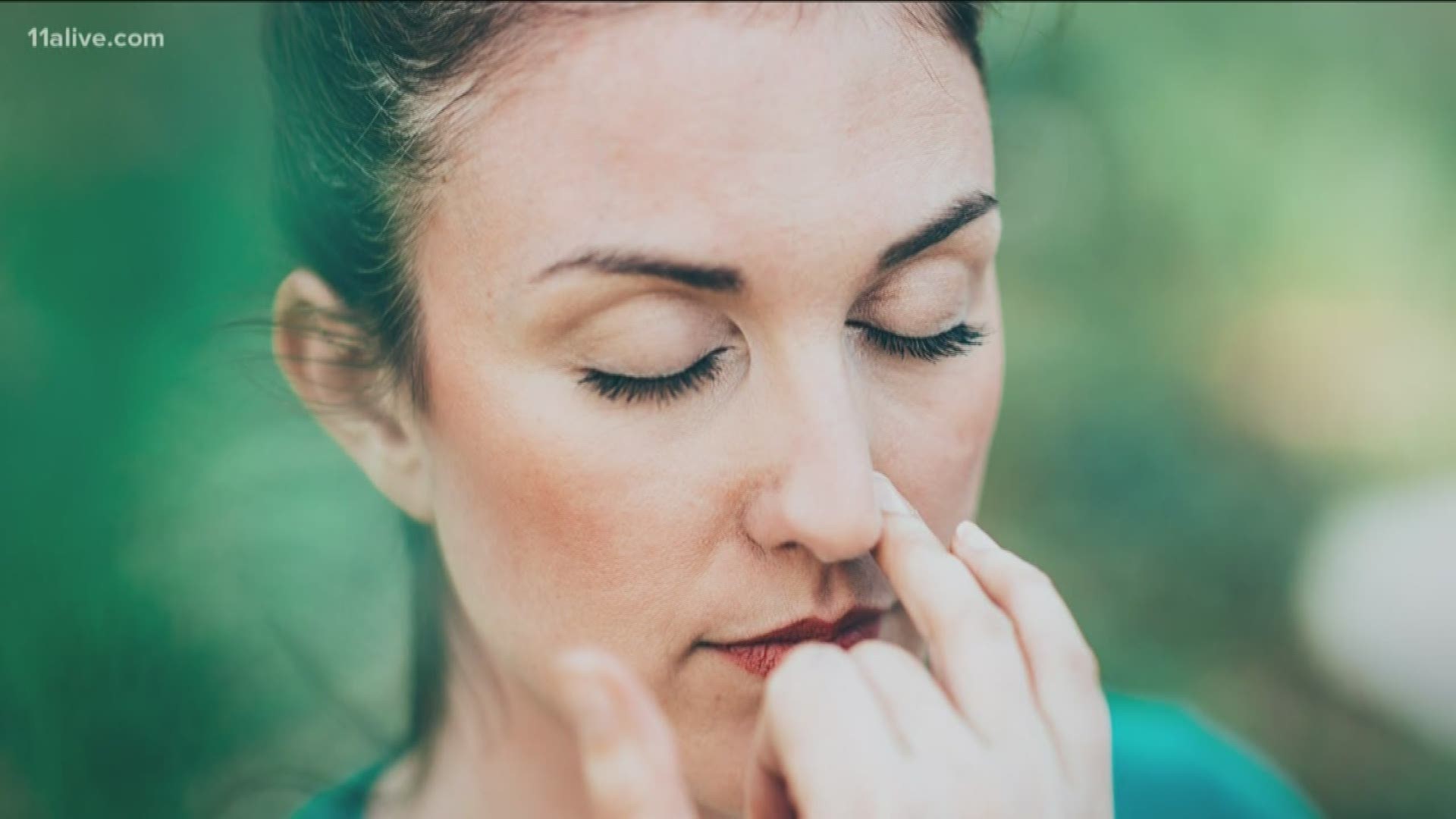HOUSTON — Editor's note: The attached video originally aired on March 24.
There’s another possible symptom to add to the list of early warning signs of coronavirus.
Conjunctivitis, commonly known as pink eye, has been seen in some patients, although it's rare.
But if you have pink eye -- along with other common symptoms like fever, dry cough and shortness of breath -- you should call your doctor.
According to the Mayo Clinic, the most common pink eye symptoms include:
- Redness in one or both eyes and/or inside the eyelid.
- Itchiness in one or both eyes
- A gritty feeling in one or both eyes
- A discharge in one or both eyes that forms a crust during the night that may prevent your eye or eyes from opening in the morning
- Tearing
On March 30, the American Academy of Opthalmology alerted doctors that patients who need to be treated for pink eye—who also have a fever and respiratory symptoms and/or have traveled to high-risk areas -- may have COVID-19. As a result, they warned doctors to cover their mouth, nose and eyes when treating these patients, and to disinfect tools and office areas well afterward.
“It isn’t surprising that coronavirus could cause this symptom,” Dr. Richard Watkins, infectious disease physician and professor of internal medicine at Northeast Ohio Medical University, told Prevention.
RELATED: Coronavirus updates: Cruise ships beg to dock in Florida; Walmart to take workers' temperatures
Neither the CDC nor World Health Organization has confirmed pink eye as a symptom of coronavirus.
But experts say it wouldn’t be surprising.
Watch: Latest coronavirus updates
“Viruses that affect the respiratory system travel up into the eyes easily,” Vivian Shibayama, O.D., an optometrist with UCLA Health, told Prevention. “Your lungs, throat, nose, tear ducts, and conjunctiva are all connected through your body’s mucous membranes.”
Blowing your nose can also spread a virus from your respiratory system to your eyes, the AOA says.
In February, reports from China showed 1% to 3% of people with Covid-19 had conjunctivitis, according to the New England Journal of Medicine and the Journal of Medical Virology.
Losing sense of taste or smell have also recently been added to the list of warning signs.
Coronavirus symptoms
The symptoms of coronavirus can be similar to the flu or a bad cold. Symptoms include a fever, cough and shortness of breath, according to the Centers for Disease Control. Some patients also have nausea, body aches, headaches and stomach issues. Losing your sense of taste and/or smell and pink eye can also be an early warning sign.
Most healthy people will have mild symptoms. A study of more than 72,000 patients by the Centers for Disease Control in China showed 80 percent of the cases there were mild.
But infections can cause pneumonia, severe acute respiratory syndrome, kidney failure and even death, according to the World Health Organization. Older people with underlying health conditions are most at risk for becoming seriously ill. However, U.S. experts are seeing a significant number of younger people being hospitalized, including some in ICU.
The CDC believes symptoms may appear anywhere from two to 14 days after being exposed.
Human coronaviruses are usually spread through...
- The air by coughing or sneezing
- Close personal contact, such as touching or shaking hands
- Touching an object or surface with the virus on it, then touching your mouth, nose or eyes before washing your hands.
Help stop the spread of coronavirus
- Stay home when you are sick.
- Eat and sleep separately from your family members
- Use different utensils and dishes
- Cover your cough or sneeze with your arm, not your hand.
- If you use a tissue, throw it in the trash.
- Follow social distancing
Lower your risk
- Wash your hands often with soap and water for at least 20 seconds. If soap and water are not available, use an alcohol-based hand sanitizer.
- Avoid touching your eyes, nose, and mouth with unwashed hands.
- Avoid close contact with people who are sick.
- Clean and disinfect frequently touched objects and surfaces.
- If you are 60 or over and have an underlying health condition such as cardiovascular disease, diabetes or respiratory illnesses like asthma or COPD, the World Health Organization advises you to try to avoid crowds or places where you might interact with people who are sick.
Get complete coverage of the coronavirus by texting 'FACTS' to 713-526-1111.

